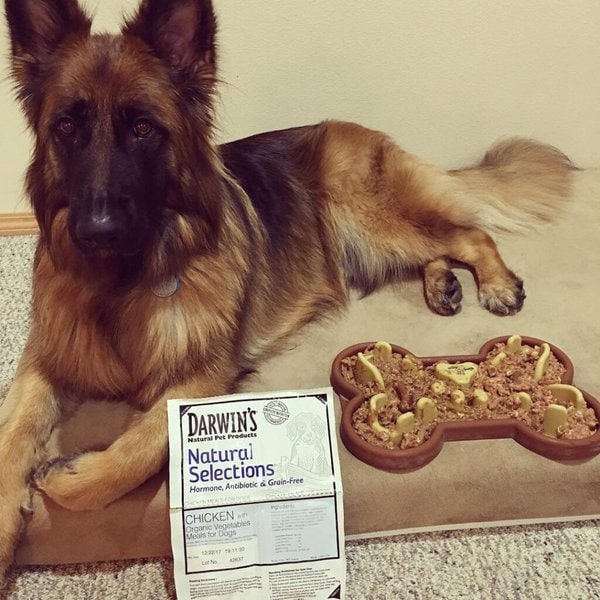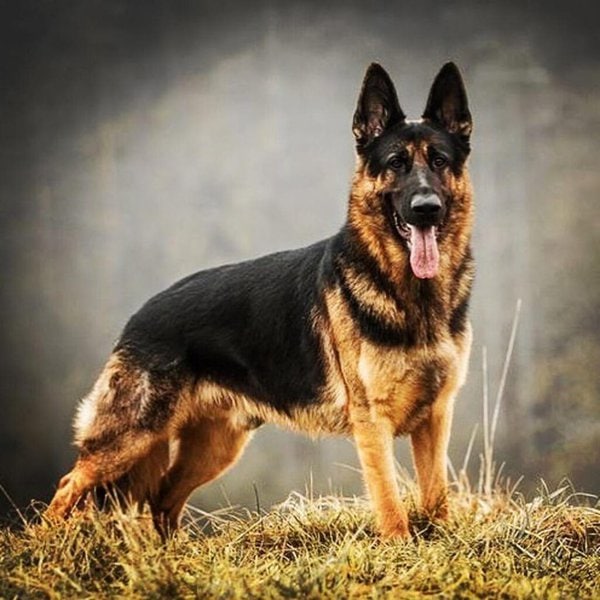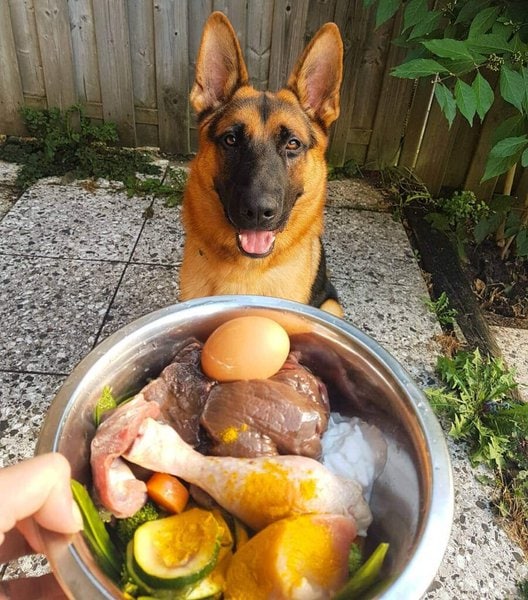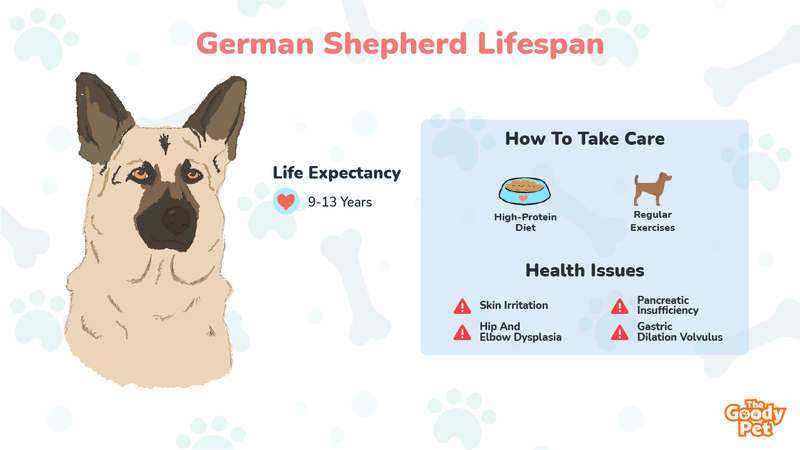German Shepherds are some of the most impressive dogs. From their strong aesthetics to their high levels of intelligence and versatility, it is no wonder that they consistently rank among the most popular dog breeds in the world. If you are interested in getting one of your own, something you have to look forward to is the breed’s long lifespan.
On average, German Shepherd Dogs can live for 9 to 13 years if they are healthy and well taken care of. In some cases, they even surpass this upper limit, with the oldest German Shepherd Dog having been recorded to have lived up to 18 years. This longevity is largely due to the healthy nature of the German Shepherd breed.
There is a lot that you have to know, prepare for, and things to do to ensure your German Shepherd’s longevity.
German Shepherd Age Limit

Many German Shepherds, which live for about 9 to 13 years, unfortunately do not making it past the 10th year mark. From another perspective, 10 years for a German Shepherd translates to about 60 human years, and one might say that it has a very long life indeed.
Here are some of the reasons why German Shepherds do not live so long as well as other factors that affect their lifespan.
Genetics And Hereditary Health Status
The German Shepherd breed is a relatively healthy one. However, they are genetically and anatomically predisposed to a number of health issues that may affect the length of their life.
Most of the conditions including issues like hip dysplasia and skin conditions are not life threatening. However, they do affect the pooch’s quality of life and may even shorten the lifespan in very severe cases.
Size And Weight
Large dogs generally have shorter lifespans than smaller dogs due to differences in metabolic rates and growth speeds. As a medium to large dog breed, the German Shepherd is unfortunately not spared the statistic and will typically have a shorter life than small dogs.
Even within the breed itself, small variations of the GSD are more likely to reach the 13th year mark than versions closer to the 100-pound upper weight limit.
Gender
Gender also plays a role in determining the length of life for a German Shepherd with female GSDs living longer than males ones.
Female German Shepherds live longer by 1.4 years on average with their lifespan being about 13 years compared to the 11 years for males.
What Do German Shepherds Usually Die From?

German Shepherd Dogs enter their senior years at the age of 7 years. It is around this point that most health issues that affect and eventually end the dog’s life start to manifest. Fortunately, most of them are manageable with early detection and prompt action.
To help you better prepare yourself for what to look out for, here are some of the most important health issues that affect GSDs.
Pancreatic Insufficiency
Pancreatic insufficiency is one of the leading causes of hormonal derangements in the German Shepherd breed. If not diagnosed and managed early, it will affect everything from digestion to metabolism leaving you with a very sickly and vulnerable doggy.
Gastric Dilatation Volvulus
Gastric Dilatation Volvulus in GSDs causes a condition known as bloat. This happens when the stomach gets twisted when it is full of food either from overeating or eating too fast.
The results can sometimes be catastrophic which is why it is crucial to have a vet examine the dog if you suspect they have the condition.
Some of the signs that point to bloat include a distended abdomen, reduced appetite, vomiting, and constipation.
Skin Irritation
German Shepherd Dogs usually have double coats and as a result are more likely to suffer from skin irritation. This is mainly triggered by environmental allergens including pollen as well as compounds in grooming products and fabrics.
It could also be due to external parasites in which case fleas and mites are the most commonly implicated.
Hip And Elbow Dysplasia
Joint Dysplasia refers to a condition where the joint socket fails to form properly resulting in improper connection between the bones involved. In German Shepherds, this mainly affects the hip and elbow joints. And if not addressed, it may result in arthritis.
How Do You Know If Your German Shepherd Is Dying?

Although German Shepherds are very hardy and healthy dogs, they can sometimes get hit very hard by some health issues. Some of these are life threatening and definitely require prompt attention if you hope to save your pooch. To help you out, here are some of the most important signs that your German Shepherd Dog is dying.
Unusual Stance And Uncoordinated Walking
If you notice your German Shepherd walking weird then there is probably something very wrong with their health. Unusual gait and uncoordinated movements are often associated with issues like joint dysplasia, spinal degeneration, or arthritis.
However, it could be as a result of serious health complications from other more serious conditions including cancer and other diseases of the central nervous system.
Intense Shivering And Muscle Twitching
German Shepherds are built to withstand cold weather with their thick, double coats. Therefore, if you notice your doggy shivering a lot, it could mean that they are not doing very well. This usually happens in the later stages of serious health issues where metabolism and the body’s heat regulation mechanisms start to fail?
Weight Loss
Another sign your GSD may be dying is weight loss. This is more often than not associated with reduced appetite and reduced energy levels. It is important to make mealtimes easier for them by switching to softer and more flavorful foods.
Changes In Mood And Behavior
German Shepherds are very brave and confident dogs and are rarely afraid of anything or anyone. Therefore, if you notice behavior changes including the dog becoming finicky and reserved, there is reason to get worried.
General Sickly Appearance
A healthy German Shepherd has a muscular build, full and smooth coat, and a confident stance. Any deviation from the normal appearance could be a sign of serious illness. This includes muscle wasting and most importantly, coat changes like dullness and alopecia.
How To Take Better Care Of Your German Shepherd?

The best way to help lengthen the lifespan and increase the life quality for your German Shepherd dog is by taking good care of them. For the most part, the GSD breed is pretty low maintenance.
You just need to understand their health and personality needs and ensure that you customize your care plan with that in mind. Here are a few tips on how to improve your GSD’s health condition so that you know where to start.
Get Your GSD On A Healthy, Balanced Diet
Diet makes all the difference when it comes to raising a healthy dog. It is important not just to focus on the quality of ingredients but also to find meals that have the perfect balance of nutrients.
For a dog like the German Shepherd, a high-protein diet is necessary to maintain their muscular physique. They also need carbs for the energy and micronutrients for all-rounded wellness.
For all this and more, we recommend you try Pet Plate. What sets them apart the most is the fact that they customize every dog’s meals based on variables like breed, age, gender, and existing health issues.
Include Supplements As Part Of The Diet
Sometimes, even the best diet will not provide your German Shepherd with all that they need. That is where supplements come in handy. With this breed, bone and joint supplements are the most important with their predisposition to conditions like hip dysplasia.
We recommend Senior Hemp Mobility – Hip & Joint Supplement for senior dogs. It contains bone-friendly compounds, including glucosamine, as well as anti-inflammatory ingredients like turmeric and hemp.
Keep The German Shepherd Active
An active German Shepherd is a healthy German Shepherd. Schedule about 1 to 2 hours every day of active playtime. This not only helps keep them fit but also helps them work out their excessive energy levels.
Schedule And Keep Up With Routine Vet Visits
Finally, make sure to keep up with your routine veterinary visits. The thing with most fatal health issues affecting German Shepherds is that they can very easily be managed if they are picked early. The only way to ensure this is by visiting a vet for full routine checkups.
How Often Do German Shepherds Need To Be Bathed? Grooming Tips For German Shepherds
German Shepherds are relatively low maintenance even when it comes to grooming.
Whether you have a long or medium-haired pooch, regular baths and brushing are important to keep them fresh and looking great.
The most important secret to easy grooming care for a GSD is to find a routine that works for both you and the dog. Here is more about what needs to be done and intervals that should work for your pooch.
Detangle And Deshed Your GSD’s Hair Regularly
German Shepherd Dogs shed a lot. Long-haired variations are further exposed to the risk of coat matting. Regular brushing helps with deshedding and detangling for a healthy and beautiful coat.
You could brush their coats 2 to 3 times a week. Just make sure you are using a high-quality brush. The FURminator Undercoat Tool is the best in this case, with its strong, metallic bristles being exactly what is needed to handle the GSD’s thick coat.
Wash The Dog Every 6 To 8 Weeks
German Shepherds are relatively clean dogs and do not tend to smell unless they have skin issues. Therefore, you can get away with a long washing interval of 6 to 8 weeks.
For the best and longest-lasting results, use a high-quality shampoo, in which case we recommend Paws & Pals 6-In-1 Oatmeal Dog Shampoo. This dog shampoo does it all, from controlling odors and irritation to conditioning the coat and moisturizing the skin.
Take Care Of Their Dental Hygiene
Your pooches can get a very stinky breath. Neglected oral hygiene also puts German Shepherds at risk for dental issues, including tartar accumulation and cavities.
If you haven’t managed to train the dog to be comfortable with tooth brushing, you could use convenient alternatives, including dental treats.
Dental Dog Treats are definitely worth giving a try. They are specially formulated to help control oral odors while also helping mechanically remove plaque and tartar.
Routinely Clean Up After Your German Shepherd
In addition to cleaning the actual German Shepherd, you have to ensure that their immediate environment is always as clean as possible. This discourages irritants like fleas and mites that take advantage of messes.
The iRobot Roomba i3+ is a handy tool to have around. This automatic vacuum unit will clean up perfectly after the German Shepherd, including collecting fur and dander before it accumulates.
Related Questions
How Long Do German Shepherd Crosses Live? Most German Shepherd crosses live between 9 and 15 years, depending on the dog breed that the German Shepherd is mixed with. When mixed with small breed pooches, they live longer than when the mix involves a large or giant dog breed. The dog’s health, as well as how well they are taken care of, also influences the length and quality of their life.
Why Does My German Shepherd Keep Barking? German Shepherds bark a lot which is mainly a result of their guarding instinct. They bark when they feel threatened, mainly by unfamiliar people or places. Your German Shepherd may also be barking out of positive excitement. Finally, the reason for the barking could be underlying medical conditions. With the latter, the barking tends to be more whiney and associated with reduced energy levels.
What Is The Longest Living German Shepherd? The oldest German Shepherd on record lived to a little over 18 years of age. There have also been reports of German Shepherds living up to 20 years, but these have never been formally confirmed. For the GSD breed to live this long, there has to be a balance of positive factors, including good genetics, a healthy diet, an active lifestyle, and keeping up with routine vet checkups.





